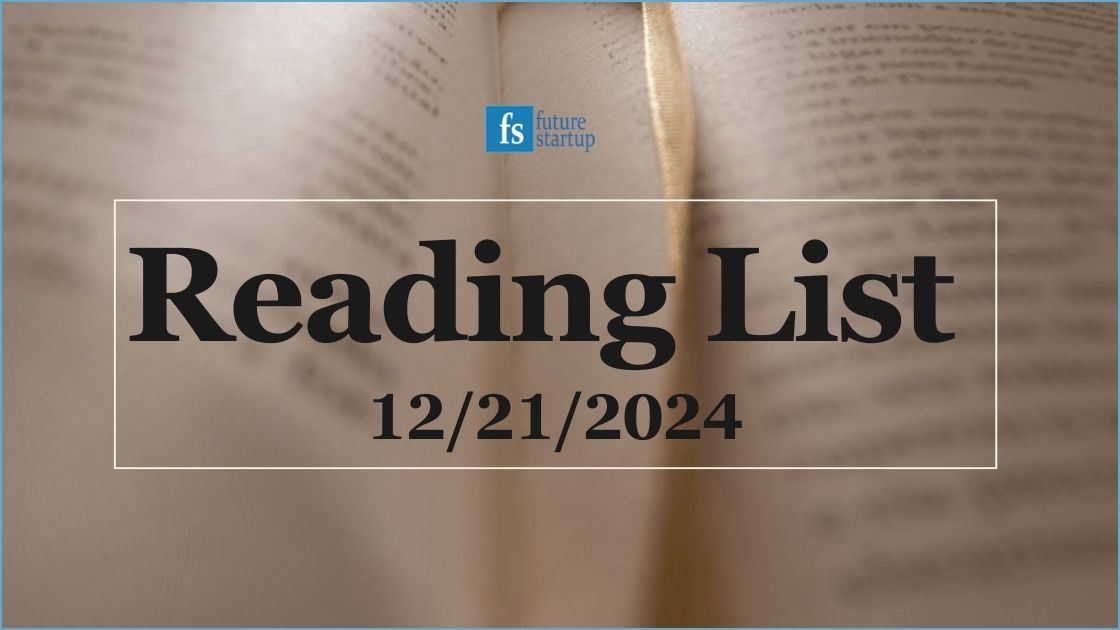
Welcome to the Reading List, a Saturday roundup of readings and links about personal growth, business, entrepreneurship, good work, and the human condition.
This maiden edition features: childhood of exceptional people, 50 lessons from Sasha Chapin, 25 hard questions for founders, what it means to play to win, and why you must do the right thing no matter what.
Have a great week ahead!
1. Childhoods of exceptional people
“Virginia Woolf never attended school. Her father, Leslie Stephen, who, along with their tutors, educated Virginia and her sister, was an editor, critic, and biographer “complicatedly hated” by his daughter and of such standing that he could invite Henry James, Thomas Hardy, and Alfred Lord Tennyson to dine and converse with his children. Leslie Stephen described his circle, in which Virginia grew up, as “most of the literary people of mark . . . clever young writers and barristers, chiefly of the radical persuasion . . . we used to meet on Wednesday and Sunday evenings, to smoke and drink and discuss the universe and the reform movement.” When they went to the Hebrides in the summers, Leslie brought along painters and philosophers, who would hang out and work in their summer house while the children played.
This parental obsession with curating a rich intellectual milieu comes through in nearly all of the biographies.”
“I know what makes people grow more reliably than anything else. It is: taking on a difficult project with some amount of public accountability. This can be large or small: a lecture series, a business, a blog, a house, a child, etc.”
3. 25 Hard Questions Every Founder Should Ask Themselves
“Did the work I do today actually move the needle on making the company successful?
A useful question to differentiate between urgent to-dos and distractions — particularly in the 0 to 1 stretch of a startup — comes from Colin Zima, CEO and co-founder of Omni. "When your startup is just five to 10 people, the company isn’t default moving forward like Google or even a late-stage startup,” says Zima.
“Whether or not you get a new customer or ship a feature or find a bunch of new prospects, that’s all on your very small team to execute. This question reminds me to spend time focusing on outputs rather than inputs — which may seem unpopular, but that’s ultimately the scoreboard. Trying is necessary but not sufficient for success. You have to tangibly create it and eliminate the efforts that don’t,” he says.”
“"Playing to Win" is for people who are trying to win at games. It's not for people who aren't. For those people who are trying to win, they should make (tournament-legal) moves that help them win rather than moves that don't. You wouldn't think that would be even slightly controversial, but somehow it is. Even though playing to win is the most important concept in competitive games, it's also widely misunderstood.”
“"Always go to the funeral" means that I have to do the right thing when I really, really don't feel like it. I have to remind myself of it when I could make some small gesture, but I don't really have to and I definitely don't want to. I'm talking about those things that represent only inconvenience to me, but the world to the other guy. You know, the painfully under-attended birthday party. The hospital visit during happy hour. The Shiva call for one of my ex's uncles. In my humdrum life, the daily battle hasn't been good versus evil. It's hardly so epic. Most days, my real battle is doing good versus doing nothing.”
